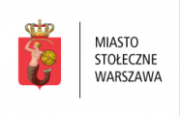EVALU
Od 18 lat współtworzymy rynek ewaluacji w Polsce
Projekty
Zaznaczenie lub odznaczenie kryteriów filtrowania w poszczególnych kategoriach możliwe po kliknięciu myszą z przytrzymanym klawiszem CTRL
Badanie ewaluacyjne IV edycji budżetu partycypacyjnego w kontekście mieszkańców zaangażowanych w proces
Zamawiający: Urząd Miasta Stołecznego Warszawy, Centrum Komunikacji Społecznej, ul. Senatorska 27, 00-099 Warszawa
Ewaluacja mid term postępu rzeczowego WRPO 2014+ na potrzeby przeglądu śródokresowego
Zamawiający: Województwo Wielkopolskie z siedzibą Urzędu Marszałkowskiego Województwa Wielkopolskiego
Głównym celem badania jest dokonanie oceny postępu rzeczowego realizacji WRPO 2014+ dla potrzeb przeglądu śródokresowego, w tym realizacji zapisów Ram i Rezerwy Wykonania.
Ewaluacja wpływu Programu Operacyjnego Rozwój Polski Wschodniej 2007-2013 (PO RPW) na rozwój przedsiębiorczości w Polsce Wschodniej
Badania społeczne dotyczące ewaluacji ex ante i ex post projektów edukacyjnych dofinansowanych przez NBP - ETAP II
Zamawiający: Narodowy Bank Polski, ul. Świętokrzyska 11/21, 00-919 Warszawa
Drugim etapem ewaluacji projektów edukacyjnych dofinansowanych przez NBP było badanie Centrum Pieniądza (CP) NBP im. Sławomira S. Skrzypka. Badanie miało na celu ustalenie profilu społeczno-demograficznego zwiedzających, rozpoznanie struktury wizyty (np. trasa w CP NBP, czas spędzany w poszczególnych miejscach, zainteresowanie poszczególnymi modułami, eksponatami, multimediami) i celu wizyty z uwzględnieniem specyfiki okresu wakacyjnego, a także ocenę satysfakcji zwiedzających z wizyty w CP NBP.
Badania społeczne dotyczące ewaluacji ex ante i ex post projektów edukacyjnych dofinansowanych przez NBP - ETAP I
Zamawiający: Narodowy Bank Polski, ul. Świętokrzyska 11/21, 00-919 Warszawa
Pierwszym etapem ewaluacji projektów edukacyjnych dofinansowanych przez NBP było badanie ewaluacyjne uczestników Wielkiego Testu Wiedzy Ekonomicznej, który odbył się w Poznaniu 22 lutego 2016 roku. Celem badania była ocena stopnia, w jakim organizacja Testu w „drugiej” lokalizacji (Poznań) przyczynia się do osiągnięcia celów całego programu.
Ocena komplementarności międzygałęziowej transportu w ramach PO IiŚ
Metaanaliza wyników badań ewaluacyjnych dotyczących oceny wsparcia z EFS – RAPORT CZĄSTKOWY 2017
Zamawiający: Ministerstwo Rozwoju, Plac Trzech Krzyży 3/5, 00-507 Warszawa
- zapewnienie informacji niezbędnych (w postaci wkładów) do rocznych raportów wdrożeniowych z realizacji PO WER, składanych do KE w 2017 i 2019 roku oraz do sprawozdania końcowego i do ewaluacji ex post,
- zapewnienie niezbędnych informacji do przygotowania corocznych syntez wyników wszystkich ewaluacji, które zostały zrealizowane w danym roku kalendarzowym – zapewnienie systematycznego podsumowywania wyników ewaluacji zrealizowanych w ramach PO KL, PO WER i RPO, ich analizy jakościowej i ilościowej oraz wyciągania spójnych wniosków i formułowania rekomendacji dla wdrażania EFS,
- opracowanie corocznej informacji na temat wartości wspólnych wskaźników rezultatu długoterminowego z listy WLWK.
Metaanaliza wyników badań ewaluacyjnych dotyczących oceny wsparcia z EFS – RAPORT CZĄSTKOWY 2016
Ewaluacja ex post realizacji Wielkopolskiego Regionalnego Programu Operacyjnego na lata 2007- 2013
Głównym celem badania jest identyfikacja i analiza rezultatów interwencji WRPO 2007-2013 oraz ocena wpływu tej interwencji na sytuację społeczno-gospodarczą województwa wielkopolskiego.
Strony
- « pierwsza
- ‹ poprzednia
- …
- 8
- 9
- 10
- 11
- 12
- 13
- 14
- 15
- 16
- …
- następna ›
- ostatnia »
EVALU participates in the CO-SECUR project to work on a European security protocol for public spaces

EVALU takes part in the project financed with 2 million euros by the Horizon Europe programme of the European Commission.







